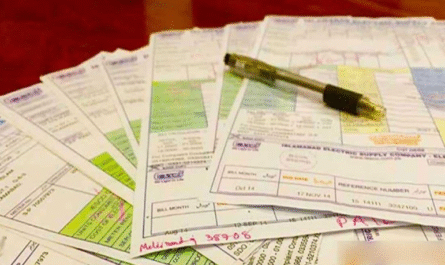In a landmark legal decision that could reshape Pakistan’s financial landscape, a special court in Sindh has handed down the country’s first-ever conviction for insider trading. The move marks a major milestone in financial regulation and sends a powerful signal that market manipulation will no longer go unchecked.
This unprecedented ruling is being hailed by legal experts, investors, and financial watchdogs as a critical step toward transparency, investor protection, and restoring trust in Pakistan’s capital markets.
What Happened? – The Insider Trading Case Explained
The case involved an individual who was found guilty of using non-public, price-sensitive information to make profits in the stock market—a classic example of insider trading. According to the Securities and Exchange Commission of Pakistan (SECP), the accused obtained confidential information from within a listed company and then traded shares based on that information, gaining unfair advantage over regular investors.
After a detailed investigation and legal proceedings, the Sindh special court found the accused guilty and sentenced them to a significant financial penalty along with imprisonment, marking the first conviction under insider trading laws in Pakistan’s history.
Why This Conviction Matters
For decades, Pakistan’s stock market has struggled with perceptions of unfair practices and lack of enforcement. While the SECP had regulations in place, the lack of successful prosecutions meant many believed insider trading was “business as usual.”
This conviction now:
- Sets a legal precedent for future insider trading cases.
- Reinforces the authority of regulatory bodies like SECP.
- Sends a strong warning to market manipulators and unethical insiders.
- Instills greater confidence among retail and institutional investors.
A Turning Point for Investor Protection
This legal action could not have come at a more critical time. As Pakistan seeks to attract foreign direct investment (FDI) and broaden participation in its stock markets, ensuring transparency and fairness is key.
For individual investors, this conviction is reassuring. It means that regulators are starting to take real action against those who rig the system for personal gain. For the first time, retail investors might feel that the playing field is beginning to level out.
SECP’s Role: A More Aggressive Regulator?
The SECP has been ramping up enforcement over the past few years. From monitoring unusual trading activity to implementing whistleblower protections and enhancing surveillance systems, the regulator has been working toward greater accountability.
This conviction shows that SECP is now not just investigating but also successfully prosecuting wrongdoers, giving it more teeth to enforce the law and clean up the markets.
Implications for Companies and Market Professionals
For company insiders, executives, brokers, and fund managers, this ruling should serve as a wake-up call. The days of unchecked insider trading may be coming to an end.
Listed companies will likely be under pressure to:
- Improve internal information security
- Follow better corporate governance practices
- Ensure timely and transparent disclosures
This also puts brokerage houses and asset managers on alert, as compliance departments will need to strengthen monitoring to prevent any unauthorized trades or leaks of material information.
Will This Attract More Investment?
Market experts believe this conviction could improve Pakistan’s image in global financial circles. One of the key concerns for international investors has always been the lack of regulatory enforcement in emerging markets.
By proving that it can catch and convict insiders, Pakistan may be able to:
- Attract foreign portfolio investment (FPI)
- Strengthen the case for upgrades in global indices (like MSCI and FTSE)
- Encourage greater participation by local investors, especially millennials
What Investors Should Know
For the average investor, this landmark conviction should be viewed as a positive signal. It suggests the market is moving toward becoming more regulated, just, and transparent.
Here’s what investors can do in this new era:
- Trust but verify: Rely on publicly available data and avoid rumors or “tips.”
- Report suspicious activity: Use SECP’s anonymous channels to report unethical behavior.
- Educate yourself: Learn the rules of fair trading and avoid being part of illegal practices unknowingly.
Conclusion: Justice for the Market
The first insider trading conviction in Pakistan is not just a win for the regulators—it’s a win for the entire investment ecosystem. It shows that Pakistan is taking financial crime seriously and is willing to uphold the principles of fairness and justice in its markets.
While one conviction alone won’t eliminate unethical trading, it sets a powerful precedent that could lead to more prosecutions, stronger deterrents, and greater investor confidence.



